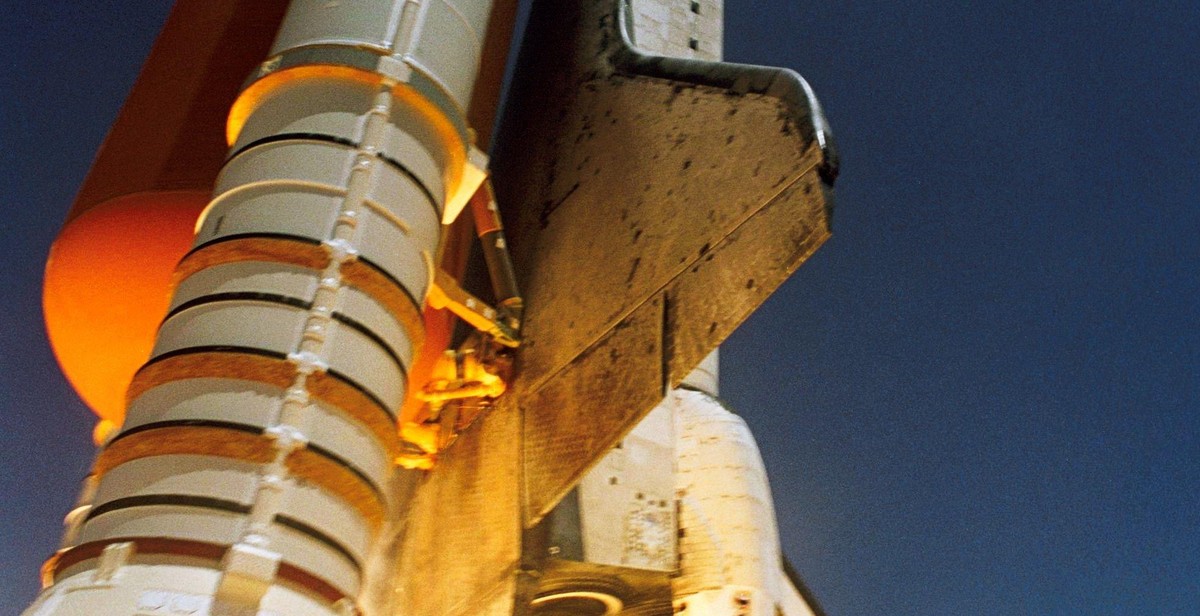Introduction: Why Space Travel is the Key to Human Development
Space travel has been a subject of fascination for humans for centuries. From the first moon landing to the recent Mars missions, space exploration has been a significant achievement for humanity. However, space travel is not just about exploring the unknown; it is also a crucial component of human development.
Why is space travel important?
Space travel has the potential to impact our lives in ways we cannot even imagine. It has already led to several technological advancements, from GPS navigation to satellite communication. Additionally, space travel has enabled us to study the universe and gain a better understanding of our planet and its place in the cosmos.
Moreover, space travel is vital for our future survival. As the population on Earth continues to grow, we will need to explore and inhabit other planets to ensure our species’ survival in the long run.
The benefits of space travel for human development
Space travel has several benefits for human development, including:
- Advancing technology and innovation
- Stimulating economic growth
- Providing new opportunities for scientific research
- Encouraging international cooperation and diplomacy
- Inspiring future generations of scientists and explorers
Overall, space travel is a crucial component of human development, and its importance will only continue to grow in the future.

Advancements in Technology
Technological advancements in space travel
Space travel has been a major driving force behind numerous technological advancements in recent years. In the past, space travel was limited to a select few countries with the resources to launch spacecraft. However, today, the space industry has grown to include private companies such as SpaceX and Blue Origin, who have made significant strides in space travel technology.
One of the most notable advancements in space travel technology is reusable rockets. SpaceX’s Falcon 9 rocket has been designed to be reusable, significantly reducing the cost of space launches. This technology has made space travel more accessible and affordable, opening up opportunities for exploration and research that were previously impossible.
Another significant advancement is the development of ion engines. These engines use electricity to ionize propellant, creating a more efficient and longer-lasting source of propulsion. This technology has been used in NASA’s Dawn mission, which explored the asteroid belt and studied the dwarf planet Ceres.
Additionally, advancements in robotics have allowed for the development of autonomous spacecraft. These spacecraft can operate without human intervention, allowing for longer missions and more extensive research. NASA’s Mars Curiosity rover is an excellent example of an autonomous spacecraft, which has been exploring the Martian surface since 2012.
Benefits of space technology on Earth
While space travel has been primarily focused on exploration and research, the technology developed for space missions has numerous benefits for life on Earth. One of the most significant benefits is the development of satellite technology. Satellites have revolutionized communication, weather forecasting, and navigation, among other things. They have also been used to study climate change, natural disasters, and provide real-time data for scientific research.
Another benefit of space technology is the development of medical devices. The technology used in space suits and life support systems has been adapted for use in medical devices such as artificial limbs and heart pumps. Additionally, the study of the effects of microgravity on the human body has led to advancements in the understanding of bone density and muscle atrophy, which has implications for the treatment of osteoporosis and other conditions.
Space technology has also led to advancements in materials science. The development of lightweight and durable materials used in spacecraft has applications in industries such as aviation and transportation.
| Benefits of space technology | Examples |
|---|---|
| Satellite technology | Weather forecasting, navigation, studying climate change |
| Medical devices | Artificial limbs, heart pumps, understanding of bone density and muscle atrophy |
| Materials science | Development of lightweight and durable materials used in spacecraft with applications in aviation and transportation |
In conclusion, space travel has been a driving force behind numerous technological advancements in recent years. The development of reusable rockets, ion engines, and autonomous spacecraft has made space travel more accessible and affordable. Additionally, the technology developed for space missions has numerous benefits for life on Earth, including satellite technology, medical devices, and advancements in materials science.

Exploration and Discovery
Space travel has always been about exploring the unknown and discovering new worlds. Throughout history, humans have been fascinated with the stars and the mysteries they hold. From ancient civilizations to modern science, we have always been driven by the desire to explore and discover what lies beyond our planet.
Exploring the Unknown
Exploration is the driving force behind space travel. It is what motivates us to push beyond our limits and explore the unknown. The vastness of space presents an endless opportunity for exploration, from our neighboring planets to distant galaxies. Through exploration, we learn more about the universe and our place in it.
The exploration of space has led to many groundbreaking discoveries that have changed the way we understand the world around us. From the discovery of new planets and moons to the exploration of black holes and supernovas, space travel has expanded our knowledge of the universe and opened up new avenues for scientific research.
Discovering New Worlds
Space travel has also allowed us to discover new worlds beyond our own. The search for habitable planets has been a major focus of space exploration in recent years. With the discovery of exoplanets, we have found planets that may have the potential to support life. This discovery has opened up new possibilities for the future of space exploration and the search for extraterrestrial life.
Space travel has also led to the discovery of new resources and technologies that have the potential to revolutionize our world. From the development of new materials to the creation of advanced medical technologies, space exploration has had a significant impact on our society and economy.
Conclusion
The exploration and discovery of space have been instrumental in advancing human development. Through exploration, we have expanded our knowledge of the universe and our place in it. The discovery of new worlds and resources has opened up new possibilities for the future of space exploration and the betterment of our world. As we continue to explore and discover the unknown, we will undoubtedly uncover new mysteries and opportunities that will shape the course of human history.

Collaboration and Unity: The Key to Successful Space Travel
Space travel has always been a subject of fascination for humans. From the first man on the moon to the recent Mars missions, space exploration has been a result of international cooperation and unity. The idea of exploring space has brought countries and cultures together, and it has helped break down barriers and promote peace.
International Cooperation in Space Travel
The success of space travel is largely dependent on international cooperation. Space agencies from different countries have come together to work on various projects, including the International Space Station (ISS). The ISS is a joint project between five space agencies: NASA, Roscosmos, JAXA, ESA, and CSA. This international collaboration has allowed for the sharing of resources, expertise, and knowledge, leading to groundbreaking discoveries and advancements in space technology.
Moreover, international cooperation has also helped reduce the cost of space exploration. By working together, space agencies have been able to share the cost of developing and launching spacecraft, making space exploration more accessible and affordable.
Breaking Down Barriers and Promoting Peace
Space exploration has also played a vital role in breaking down barriers between countries and promoting peace. Through international cooperation in space, countries have been able to build trust and understanding, leading to diplomatic relations and treaties. The Apollo-Soyuz Test Project, for example, was a joint mission between the United States and the Soviet Union during the Cold War. This mission helped ease tensions between the two countries and paved the way for future collaboration in space.
Furthermore, space exploration has also helped promote unity among people from different cultures and backgrounds. Astronauts from different countries work and live together on the ISS, sharing their experiences and knowledge. This has helped foster a sense of global community and understanding.
Conclusion
In conclusion, international cooperation and unity are essential for the success of space travel. Through collaboration, space agencies have been able to achieve groundbreaking discoveries and advancements in space technology. Moreover, space exploration has played a vital role in breaking down barriers and promoting peace, leading to diplomatic relations and treaties. As we continue to explore space, it is crucial that we continue to work together and promote unity among different cultures and backgrounds.

Challenges and Solutions in Space Travel
Overcoming Obstacles in Space Travel
Space travel is a challenging and risky endeavor that requires overcoming various obstacles. Some of the major challenges include:
- Gravity: The gravitational force of the Earth makes it difficult to launch spacecraft into orbit. Scientists have developed powerful rockets and launch systems to overcome this obstacle.
- Radiation: Space is filled with high levels of radiation that can be harmful to humans. Spacecraft are equipped with radiation shields to protect astronauts from exposure to harmful radiation.
- Microgravity: Long-term exposure to microgravity can have negative effects on the human body, including bone and muscle loss. Scientists are researching ways to mitigate these effects, such as exercise routines and artificial gravity systems.
Solutions for Long-Term Space Travel
As humans venture further into space, long-term space travel becomes a necessity. Some of the solutions that scientists are exploring to make this possible include:
- Advanced Life Support Systems: These systems are designed to provide astronauts with the necessary resources to survive in space for extended periods of time, including food, water, and oxygen.
- Regenerative Life Support Systems: These systems are designed to recycle waste products and convert them into usable resources, such as water and oxygen. This reduces the need for resupply missions and makes long-term space travel more sustainable.
- Advanced Propulsion Systems: These systems are designed to enable faster and more efficient travel through space. Examples include ion thrusters and nuclear propulsion systems.
| Propulsion System | Advantages | Disadvantages |
|---|---|---|
| Ion Thrusters | Efficient, low fuel consumption | Low thrust, limited acceleration |
| Nuclear Propulsion | High thrust, faster travel | Expensive, potential safety concerns |
Overall, space travel presents many challenges, but with innovative solutions and advancements in technology, humans can continue to explore and push the boundaries of what is possible.
